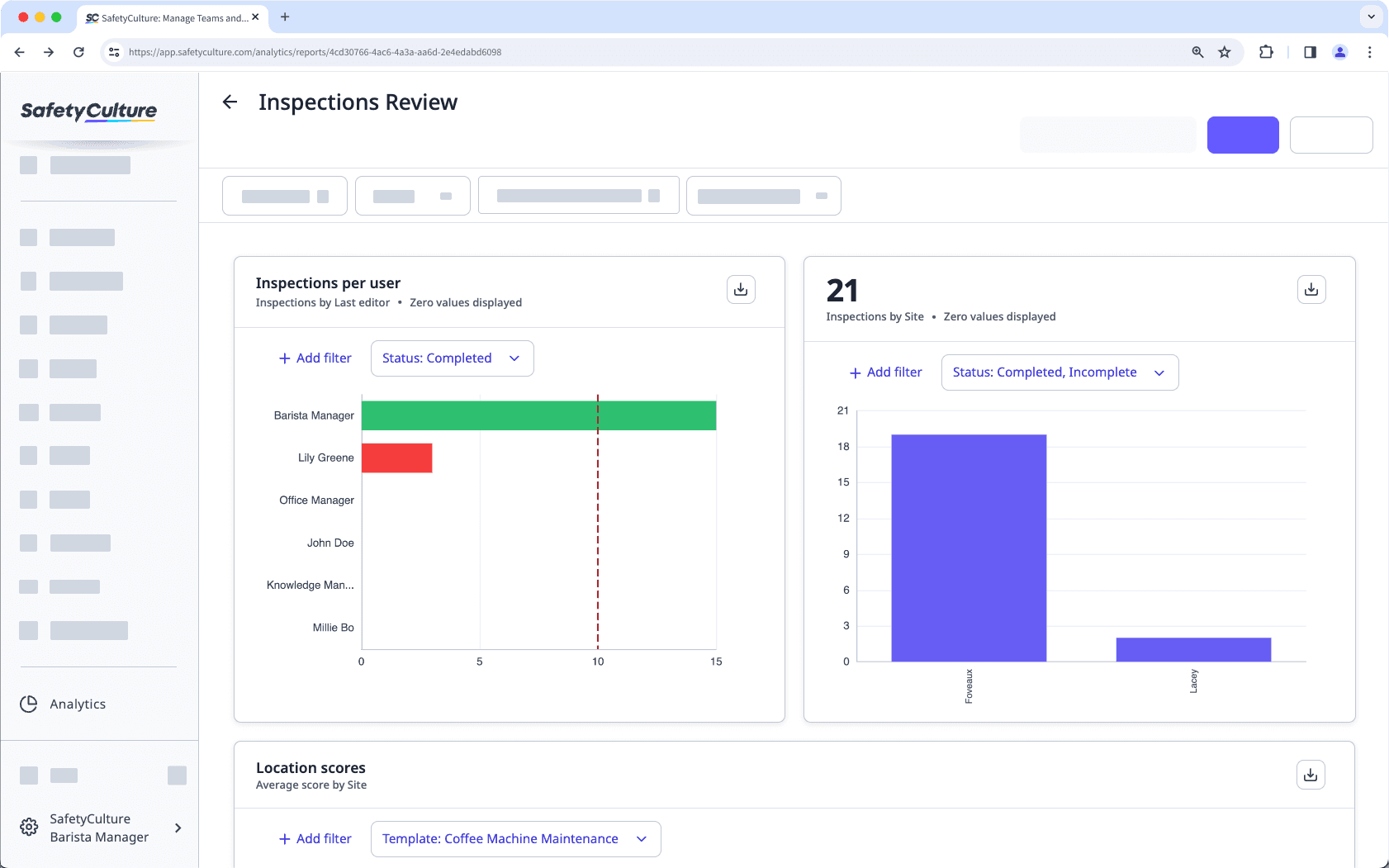Personnalisez la visibilité des graphiques des données analytiques
Configurez la visibilité des données pour les graphiques de Données analytiques dans l'application Web afin d'afficher ou de masquer uniquement les informations pertinentes dans les tableaux de bord.Que signifie personnaliser la visibilité des données ?
Pour tirer le meilleur parti de vos tableaux de bord de Données analytiques, il est essentiel de contrôler les données que vous choisissez d'afficher. La personnalisation de la visibilité des données dans les graphiques vous permet d'afficher ou de masquer les valeurs nulles, ce qui permet d'établir des rapports basés sur les exceptions pour mettre en évidence les succès de votre équipe et identifier les zones à améliorer.
En outre, vous pouvez masquer le nombre total de mesures dans vos graphiques, ce qui permet de réduire le bruit dans vos tableaux de bord et de faire ressortir les informations les plus pertinentes. Ce niveau de personnalisation améliore la clarté et permet à votre équipe de se concentrer sur ce qui compte vraiment.

Les mesures sans comptage telles que la « Durée moyenne », le « Score moyen » etc. afficheront des valeurs nulles par défaut.
Personnaliser la visibilité des données d'un graphique
Sélectionnez
Données analytiques dans la barre latérale ou sélectionnez-le dans
Plus.
Cliquez sur Enregistrer en haut à droite de la page.
Dans le panneau latéral, cliquez sur Paramètres des graphiques, puis sélectionnez Visibilité des données.
Dans le panneau latéral, activez ou désactivez les paramètres de visibilité des données selon vos besoins.
Afficher les éléments avec zéro valeur: Afficher ou masquer les valeurs où aucune donnée n'a été créée.
Masquer la mesure totale au-dessus du graphique: Afficher ou masquer le nombre total en fonction de votre mesure configurée et de votre attribut en haut à gauche du graphique.
Cliquez sur Enregistrer le graphique en haut à droite de la page pour enregistrer les modifications apportées au graphique.
Cliquez sur Enregistrer en haut à droite de la page pour enregistrer les modifications dans votre tableau de bord.
Pour les graphiques comportant plusieurs attributs configurés, les valeurs nulles ne s'affichent que pour le premier attribut, sauf pour le type de graphique « Tableau chronologique ».
Limitations
L'affichage des valeurs zéro n'est actuellement pas pris en charge pour les paramètres graphiques suivants :
Métriques | Attributs | Types de graphique |
|---|---|---|
Inspections planifiées | Statut (inspections, actions et observations) | Graphique circulaire |
Inspections terminées (planifiées) | Question (Inspections) | Cadran |
Page / Section / Question (Inspections) | Type (Actions) | |
Priorité (actions et observations) | ||
Type (Actions) |
FAQ
Un tiret représente les valeurs zéro pour toutes les mesures qui ne sont pas des mesures de comptage. Par exemple, si vous créez un graphique avec le « score moyen » comme unité, un tiret représentera les points de données où aucune donnée n'est créée, tandis qu'un zéro reflétera le score réel.
Cette page vous a-t-elle été utile?
Merci pour votre commentaire.